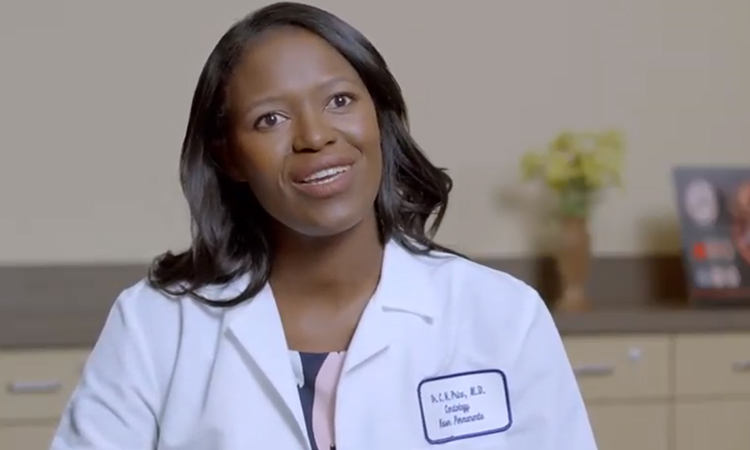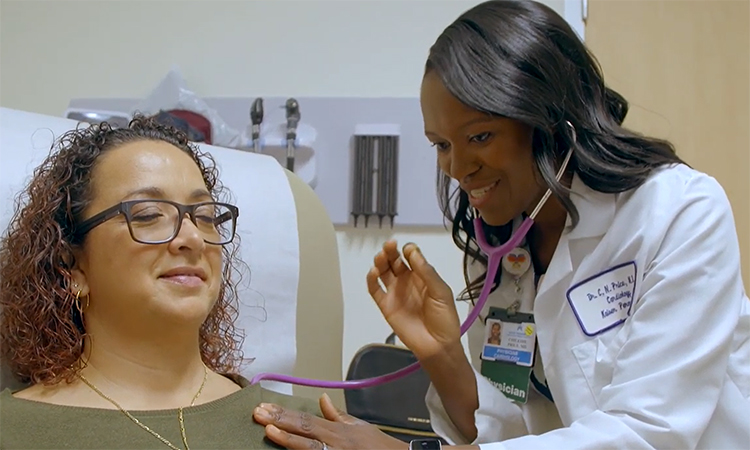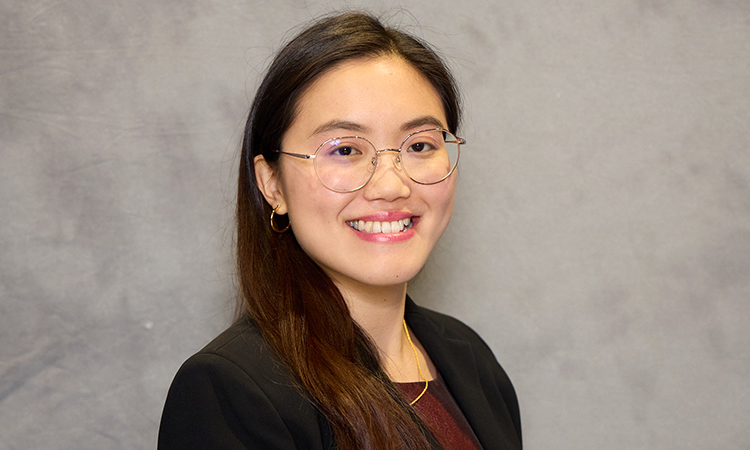Chileshe Nkonde-Price, MBBS, MSHP, FACC, is a KPSOM Assistant Professor of Clinical Science, a Cardiologist with Kaiser Permanente Southern California, and a Clinician Investigator with the KP Southern California Department of Research and Evaluation. Dr. Price has extensive experience teaching Internal Medicine and cardiovascular medicine to medical students, residents, and fellows. Her research focuses on the intersection of digital health and cardiovascular health, with emphasis on virtual cardiovascular care. In this first edition of KPSOM’s new series featuring tips for future doctors on various medical specialties, we asked Dr. Price what she wished she’d known when she was a medical student exploring various areas of specialty.
What do you wish you knew as you considered your career path into Cardiology?
I wish I had known that by the time I finished training there [would] be innovative learning methods available for Cardiologists interested in Interventional Cardiology (the specialty of Cardiology where you perform [procedures] under X-ray guidance (catheterization). I read an amazing publication in 2016 about a Cardiologist’s opportunity to use simulators to train in her field, despite being pregnant!
I mention this as a female Cardiologist, as it is commonly known that there are less women in Interventional Cardiology, a subspeciality I loved but did not end up choosing. [This was] mostly because I was heavily pregnant during my interventional training rotations and was concerned I would not be able to complete all the training cases I needed to be a competent and highly skilled Interventional Cardiologist.
I remember writing my Cardiology Board exams heavily pregnant with my second child and nursing my first (the [child] I was pregnant with during training). Anyway, I managed to [drive an hour to the testing site to complete a three-hour computer exam]. Ten years later I was pleasantly surprised to receive my notice from Cardiology Boards to re-certify … [which happens] every 10 years … and an option to take the exam remotely using virtual proctoring was available as well as an option to share if I was pregnant or nursing, which provided extra time and accommodations, like nursing and extra bathroom breaks, to complete the exam.
What would surprise prospective or current medical students about what a Cardiologist does, needs to know, how they might operate their practice, etc.?
I think it would surprise medical students to know how much your practice involves simple listening. Listening to a patient’s story (without saying a word) … to determine how much, if any, of their symptoms involve their emotional heart in addition to their physical heart. I like to tell patients, “I like to know the heart I’m healing,” and then I sit back and just listen. Medical students will learn this skill early in their clinical training and I think it would surprise them to know how often they will use this in their daily Cardiology clinical practice. Examples [include] the young woman with the dangerous irregular heartbeat who has been dismissed or misdiagnosed and who is concerned less about what treatment [the physician] will prescribe or the type of implantable defibrillator you will recommend, but wants to be reassured that you will listen to exactly what happened to her … before you met, take care of her, and be available if she has additional questions.
I think a second surprising aspect of the practice of Cardiology is how many different kinds of Cardiologists there can be. In fact, although the practice is traditionally divided into invasive Cardiologists and non-invasive Cardiologists, it’s even more varied. There are Cardiologists who focus exclusively on disorders of the rhythm of the heart (electrophysiologists), Cardiologists who specialize in adults with congenital heart disease (babies born with heart conditions who are now adults over 18 years old and now need an adult Cardiologist to take over their care), Cardiologists who care for patients with advanced heart failure or who need a heart transplant, and the list goes on.
Tell us about your passion for being in the field of Cardiology. What drives you every day?
I have talked about this previously in A Passion for the Practice of Cardiology . However, in summary, if I had the option to pick my specialty again, I would pick Cardiology again, hands down! The nerd in me loves that the practice of Cardiology involves applying my core disciplines from medical school—knowledge of anatomy to know where to examine, knowledge of physiology to interpret what I hear with my stethoscope or interpret what I see on the heart monitor, knowledge of pharmacology to know what to prescribe, and knowledge of pathology to understand what the diagnosis could be. The philosopher in me loves that Cardiology requires me to think deeply, listen deeply, and problem solve with my patients. I often find when I apply this approach, we clinch the diagnosis together (usually at the end of the visit) and it makes even the straightforward textbook cases exciting and inspiring.
I’m passionate to be in a field that has so many opportunities to fuel my personal interest in digital health and healthcare innovation. At Kaiser Permanente, I am involved in our virtual cardiac rehabilitation program, a technology-enhanced, home-based cardiac rehabilitation that uses smartwatches and remote monitoring to provide virtual cardiac rehabilitation to our patients after they are discharged from the hospital post-heart attack and complex cardiac surgery. It is opportunities like this that fuel my passion for my practice and drive me every day.




